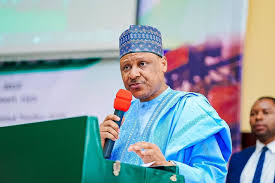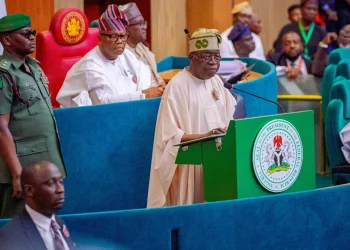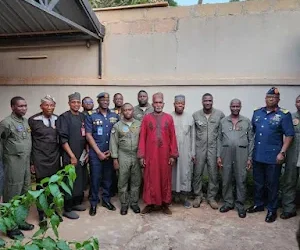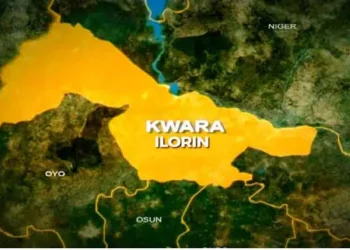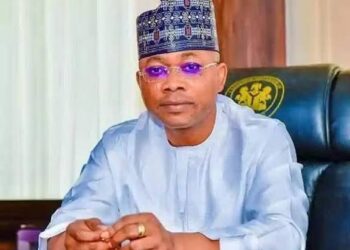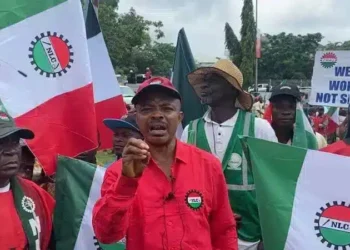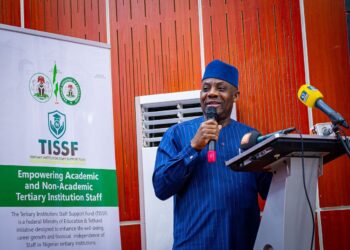Nigeria’s Information and National Orientation Minister, Mohammed Idris, has publicly declared that President Bola Tinubu has never instructed him to suppress media criticism or take punitive action against journalists reporting unfavorably on the administration.
The minister made this revelation during a high-profile meeting with representatives of the Nigerian Guild of Editors (NGE) in Abuja on Wednesday, as tensions between the government and media organizations continue to simmer across the country.
President Demonstrates Democratic Values
Speaking to a delegation led by NGE General Secretary Onuoha Ukeh and Deputy President Sebastian Abu, Idris emphasized President Tinubu’s unwavering respect for democratic principles and press freedom.
“There are times when the media instigate tension, but President Tinubu never urged me to alter the narrative, lie, arrest, or harass anyone,” Idris stated emphatically. “This is because the President is a true democrat who respects the rule of law.”
The minister’s comments come amid growing concerns from media practitioners about potential government interference in press activities, with some journalists citing instances of intimidation and harassment in recent months.
Media as Essential Partner
Idris stressed the administration’s recognition of the media’s crucial role in governance, describing it as an indispensable partner in democratic processes.
“The Federal Government believes it cannot function effectively without the media, which remains the fourth estate of the realm,” he explained, reinforcing the constitutional importance of press freedom in Nigeria’s democracy.
The Information Minister revealed that his ministry has maintained open channels of communication with major media organizations, including the Nigeria Union of Journalists (NUJ), the NGE, and the Newspaper Proprietors’ Association of Nigeria (NPAN).
Constructive Criticism Welcome
While acknowledging that the administration has faced harsh criticism and occasional defamatory publications, Idris called for more constructive engagement between the government and media houses.
“I’ve always engaged the NUJ, NGE, Newspaper Proprietors’ Association of Nigeria and others whenever issues arise,” he noted. “When we do well, praise us. When we fall short, tell us constructively so we can improve.”
The minister urged journalists to avoid interpreting isolated incidents as systematic attempts to muzzle the press, insisting that the Tinubu administration remains committed to transparency and media freedom.
Nigeria Set to Host Global Media Center
In a significant development for Nigeria’s media landscape, Idris announced that the country is close to securing final approval to host the UNESCO Media and Information Literacy (MIL) Centre at the National Open University in Abuja.
“This is a great achievement, because when established, the MIL Centre will bring stakeholders from across the globe to Nigeria,” he explained. “This will enhance media literacy in our country and checkmate the spread of fake news and issues of misinformation and disinformation in the country and the world at large.”
The proposed center represents a major milestone in Nigeria’s efforts to combat the proliferation of false information and strengthen media standards across the continent.
Ongoing Dialogue
The meeting with the NGE delegation forms part of the government’s broader strategy to maintain regular dialogue with media stakeholders and address concerns before they escalate into major confrontations.
Industry observers view these engagement efforts as crucial for maintaining the delicate balance between government accountability and responsible journalism in Nigeria’s evolving democratic landscape.
As Nigeria continues to grapple with various socio-economic challenges, the relationship between the Tinubu administration and the media remains a critical factor in ensuring transparent governance and public accountability.
The Information Minister’s assurances come at a time when press freedom advocates are closely monitoring government actions and policies that could impact media operations across the country.

